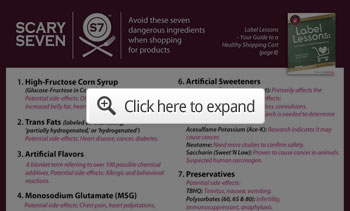TOP NEWS
Heavy use of herbicide Roundup linked to health dangers-U.S. study
Thu, Apr 25 13:49 PM EDT
* Study says chemical residues linked to disease
* Roundup developer Monsanto says glyphosate is safe
* Researchers say more study is needed
By Carey Gillam
April 25 (Reuters) - Heavy use of the world's most popular herbicide, Roundup, could be linked to a range of health problems and diseases, including Parkinson's, infertility and cancers, according to a new study.
The peer-reviewed report, published last week in the scientific journal Entropy, said evidence indicates that residues of "glyphosate," the chief ingredient in Roundup weed killer, which is sprayed over millions of acres of crops, has been found in food.
Those residues enhance the damaging effects of other food-borne chemical residues and toxins in the environment to disrupt normal body functions and induce disease, according to the report, authored by Stephanie Seneff, a research scientist at the Massachusetts Institute of Technology, and Anthony Samsel, a retired science consultant from Arthur D. Little, Inc. Samsel is a former private environmental government contractor as well as a member of the Union of Concerned Scientists.
"Negative impact on the body is insidious and manifests slowly over time as inflammation damages cellular systems throughout the body," the study says.
We "have hit upon something very important that needs to be taken seriously and further investigated," Seneff said.
Environmentalists, consumer groups and plant scientists from several countries have warned that heavy use of glyphosate is causing problems for plants, people and animals.
The EPA is conducting a standard registration review of glyphosate and has set a deadline of 2015 for determining if glyphosate use should be limited. The study is among many comments submitted to the agency.
Monsanto is the developer of both Roundup herbicide and a suite of crops that are genetically altered to withstand being sprayed with the Roundup weed killer.
These biotech crops, including corn, soybeans, canola and sugarbeets, are planted on millions of acres in the United States annually. Farmers like them because they can spray Roundup weed killer directly on the crops to kill weeds in the fields without harming the crops.
Roundup is also popularly used on lawns, gardens and golf courses.
Monsanto and other leading industry experts have said for years that glyphosate is proven safe, and has a less damaging impact on the environment than other commonly used chemicals.
Jerry Steiner, Monsanto's executive vice president of sustainability, reiterated that in a recent interview when questioned about the study.
"We are very confident in the long track record that glyphosate has. It has been very, very extensively studied," he said.
Of the more than two dozen top herbicides on the market, glyphosate is the most popular. In 2007, as much as 185 million pounds of glyphosate was used by U.S. farmers, double the amount used six years ago, according to Environmental Protection Agency (EPA) data.
Heavy use of herbicide Roundup linked to health dangers-U.S. study
Mo' Fresh. Mo' Betta.™
 Why? Why? Oh, why do we do these things? Does this really further medical science? It seems many think so. Glow in the dark animals created from transgenic engineering are intensely weird to me. Here is an article I found:
Why? Why? Oh, why do we do these things? Does this really further medical science? It seems many think so. Glow in the dark animals created from transgenic engineering are intensely weird to me. Here is an article I found:






